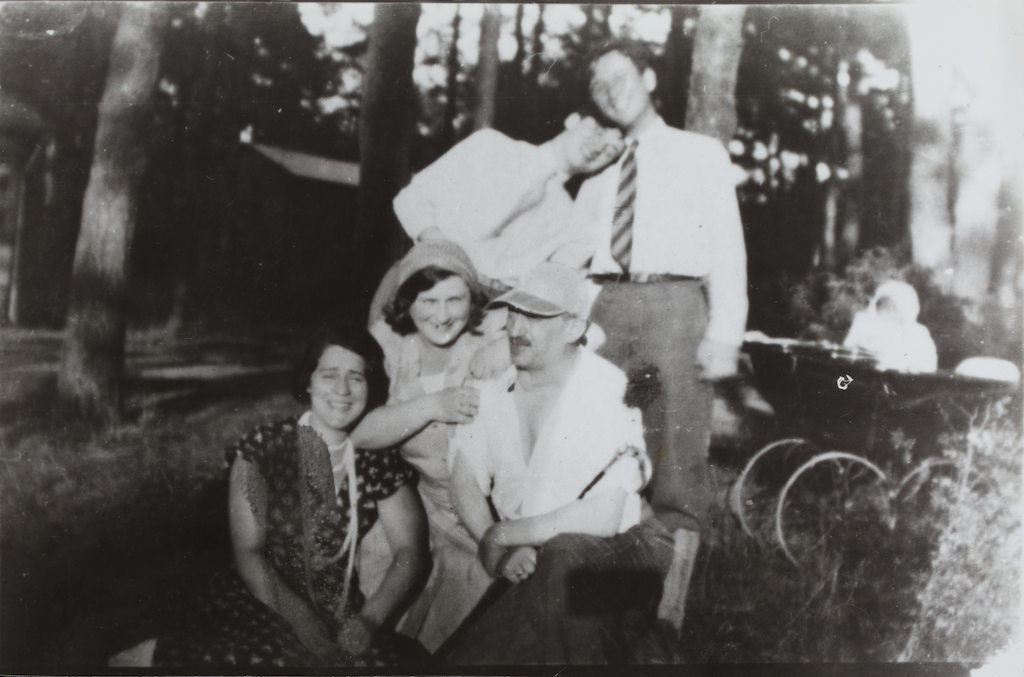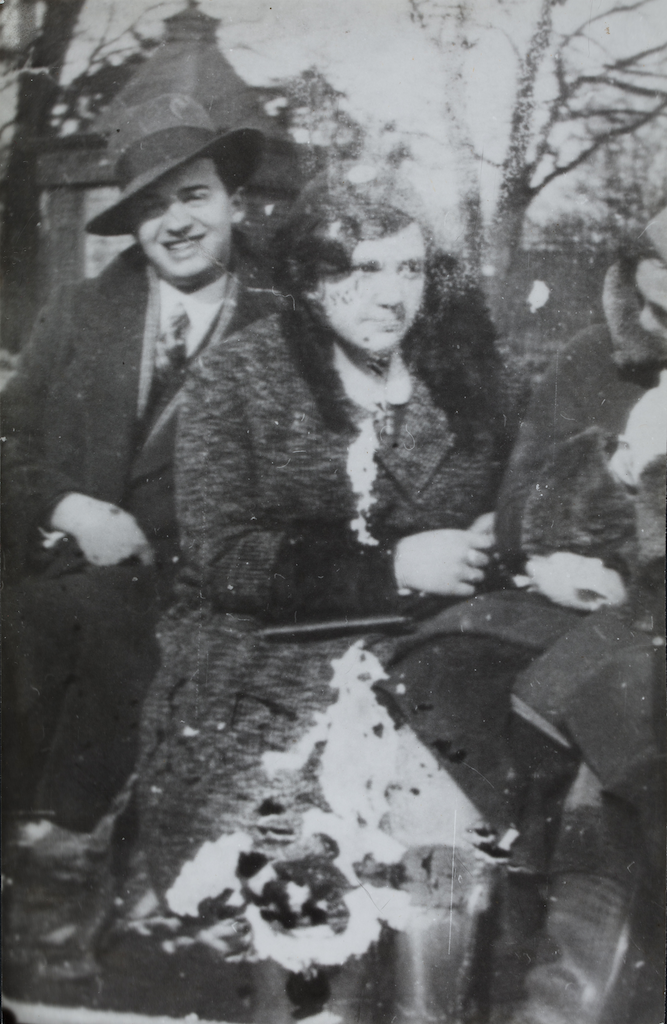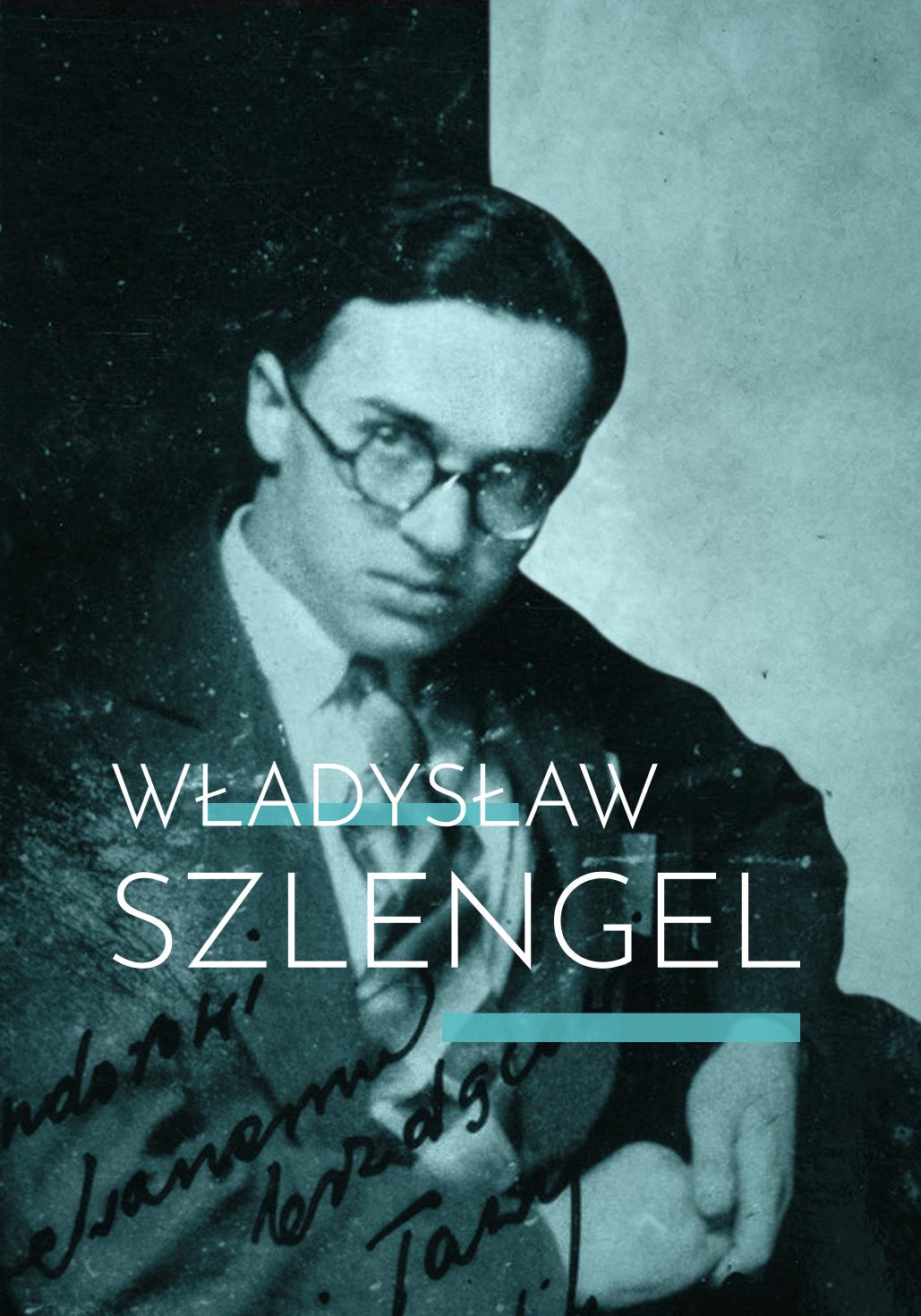1912 (or 1914), Warsaw — 8 V 1943, Warsaw Ghetto
Biography
Władysław Szlengel was a poet, journalist, satirist, and stage actor. He was the author of many songs sung throughout Warsaw. He was the chronicler of the Warsaw Ghetto, often referred to as the “chronicler of the drowning”, and the author of the insurgents’ anthem.
Born in 1914 in Warsaw, his artistic work was largely connected to the city. From the beginning of the 1930s until the outbreak of the war, he collaborated with Nasz Przegląd (‘Our Review’), a journal of the Jewish minority in Warsaw. He also published articles in the satirical weekly magazine Szpilki (‘Pins/High heels’) and wrote on social and political issues for Robotnik (‘Worker’). He only wrote in Polish and was particularly fond of creating material for cabarets. He was providing lyrics and collaborating with such theatres as 13 Rzędów, Ali Baba, and Tip-Top.
When the war broke out, Władysław and his wife moved to Białystok, where he worked for the Miniature Theatre. At the beginning of 1940, he returned to Warsaw and was moved to the ghetto. He earned a living working at the art cafe Sztuka (Art), alongside the cabaret actress Wiera Gran and the pianist Władysław Szpilman. He collaborated with the Oneg Shabbat group, an underground organization documenting life in the Warsaw ghetto. His poems describe the destruction of the Jewish people.
In 1942, he managed to avoid deportation. He was relegated to work at a brushmakers’ workshop belonging to a German company. The workshop was also used by workers to produce explosives for the resistance fighters and provided support for the activity of the Ringelblum Archive, i.e., the Underground Archive of the Warsaw Ghetto, established in 1940 at the initiative of Emanuel Ringelblum. Władysław Szlengel’s attempts to seek refuge on the „Aryan“ side of the city proved unsuccessful. He died during the Warsaw Ghetto Uprising in April 1943.
Władysław Szlengel was a poet, journalist, satirist, and stage actor. He was the author of many songs sung throughout Warsaw. He was the chronicler of the Warsaw Ghetto, often referred to as the “chronicler of the drowning”, and the author of the insurgents’ anthem.
Born in 1914 in Warsaw, his artistic work was largely connected to the city. From the beginning of the 1930s until the outbreak of the war, he collaborated with Nasz Przegląd (‘Our Review’), a journal of the Jewish minority in Warsaw. He also published articles in the satirical weekly magazine Szpilki (‘Pins/High heels’) and wrote on social and political issues for Robotnik (‘Worker’). He only wrote in Polish and was particularly fond of creating material for cabarets. He was providing lyrics and collaborating with such theatres as 13 Rzędów, Ali Baba, and Tip-Top.
When the war broke out, Władysław and his wife moved to Białystok, where he worked for the Miniature Theatre. At the beginning of 1940, he returned to Warsaw and was moved to the ghetto. He earned a living working at the art cafe Sztuka (Art), alongside the cabaret actress Wiera Gran and the pianist Władysław Szpilman. He collaborated with the Oneg Shabbat group, an underground organization documenting life in the Warsaw ghetto. His poems describe the destruction of the Jewish people.
In 1942, he managed to avoid deportation. He was relegated to work at a brushmakers’ workshop belonging to a German company. The workshop was also used by workers to produce explosives for the resistance fighters and provided support for the activity of the Ringelblum Archive, i.e., the Underground Archive of the Warsaw Ghetto, established in 1940 at the initiative of Emanuel Ringelblum. Władysław Szlengel’s attempts to seek refuge on the „Aryan“ side of the city proved unsuccessful. He died during the Warsaw Ghetto Uprising in 1943.
Telephone
translated into English by Piotr Zadworny
With a sick and broken heart,
and thinking about the other side,
I sat in the evening
by the telephone —
And I thought: I’d call
someone on the other side
when I’m on my shift by the telephone
in the evening —
And then I thought: My God —
I have no-one really to call,
in the year thirty-nine
I went down a different path —
I grab the earpiece
the line is swinging pathetically
I choose a number I know
and I am answered by… a talking clock…
Ten fifty-six,
if you want, we can reminisce
how in the year thirty-nine
I had just left a cinema
Ten fifty-seven
I went home on a „zero”,
from Chmielna, the „Atlantic” cinema,
from a Gary Cooper movie
Nowy Świat was still all in sparks,
and couples would still go for a walk
and the Café Club was still open
— eleven oh-three…
How nice it is to talk to you
without an argument, a difference of opinions,
you are the nicest, my talking clock
of all the ladies I know
— and that someone remembers it all,
that there was a common fate
and is not afraid to talk to me
and has such a calm voice.
Be well, my distant,
there are hearts where nothing changes,
It’s five to midnight — you say —
you are right… so goodbye.
 Władysław Szlengel laying his head on the shoulder of Ignac Papelbaum, by an unknown photographer, 1931.
Władysław Szlengel laying his head on the shoulder of Ignac Papelbaum, by an unknown photographer, 1931.

Władysław Szlengel with…, by an unknown photographer, April 1931.
The photos belong to the resources of the Jewish Historical Institute in Warsaw.

